 EDITOR'S PICK
EDITOR'S PICK
In Just 15 Years, No One Will Own an Electric Car - Here's What Will Replace Them Instead
21 Sep 2025 | Synopsis
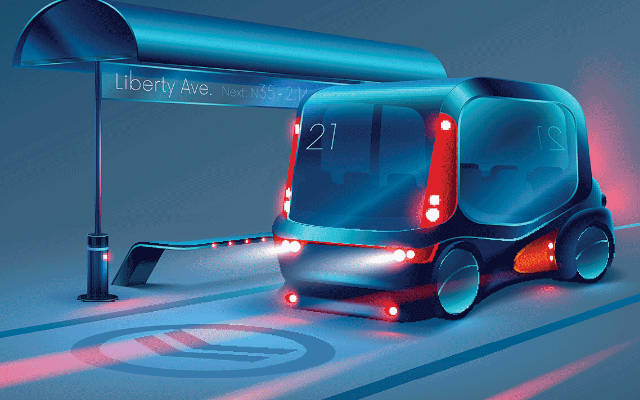 EVs are central to a coming shift in mobility: by 2040, personal electric car ownership may disappear as automakers pivot to subscription-based, software-driven models. EVs will serve as platforms for autonomous fleets, shared transport, and tiered digital services. Younger users prefer access over ownership, and manufacturers are redesigning vehicles as connected devices - raising concerns over repair rights, data control, and user autonomy.
EVs are central to a coming shift in mobility: by 2040, personal electric car ownership may disappear as automakers pivot to subscription-based, software-driven models. EVs will serve as platforms for autonomous fleets, shared transport, and tiered digital services. Younger users prefer access over ownership, and manufacturers are redesigning vehicles as connected devices - raising concerns over repair rights, data control, and user autonomy.US Firm Bids To Bring 'Flying Boats' to Scottish Islands Transport Network
21 Sep 2025 | Synopsis
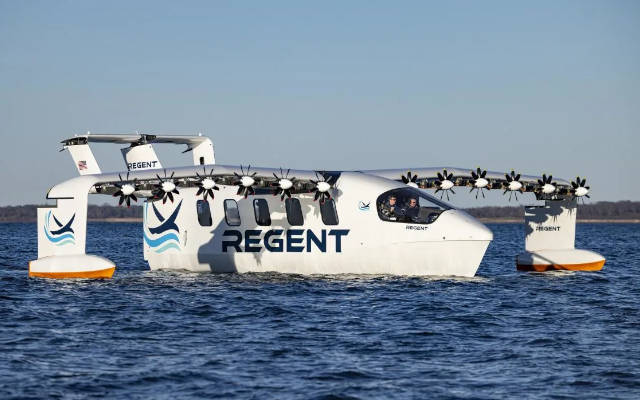 US firm Regent is partnering with Scotland’s Hitrans to explore using electric "flying boats" called Seagliders for island transport. These vessels combine boat, hydrofoil, and low-altitude flight technologies, reaching speeds up to 180 mph. A 12-passenger model may launch in Orkney by 2026–2027, with a larger version planned for 2030. The project aims to improve connectivity and reduce emissions across the Highlands and Islands.
US firm Regent is partnering with Scotland’s Hitrans to explore using electric "flying boats" called Seagliders for island transport. These vessels combine boat, hydrofoil, and low-altitude flight technologies, reaching speeds up to 180 mph. A 12-passenger model may launch in Orkney by 2026–2027, with a larger version planned for 2030. The project aims to improve connectivity and reduce emissions across the Highlands and Islands.The Electric Bus You Thought Was Dead - But Isn't
19 Sep 2025 | Synopsis
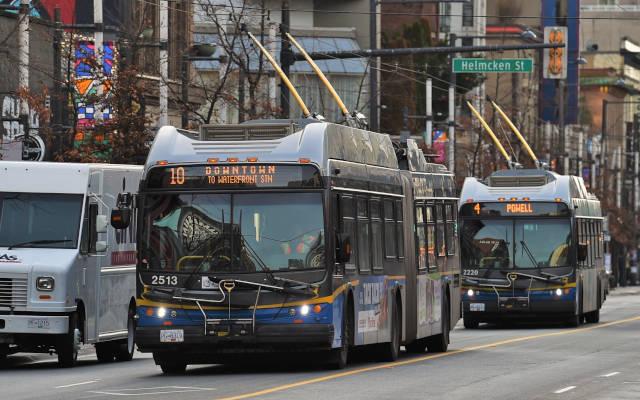 Modern trolleybuses using in-motion charging (IMC) are making a comeback as cost-effective, grid-friendly alternatives to battery-electric buses. They charge via overhead wires and run off-wire using small batteries, reducing infrastructure and maintenance costs. Ideal for dense, hilly cities or those with legacy systems, they face funding and public perception challenges but offer strategic advantages in urban transit electrification.
Modern trolleybuses using in-motion charging (IMC) are making a comeback as cost-effective, grid-friendly alternatives to battery-electric buses. They charge via overhead wires and run off-wire using small batteries, reducing infrastructure and maintenance costs. Ideal for dense, hilly cities or those with legacy systems, they face funding and public perception challenges but offer strategic advantages in urban transit electrification.European Study Finds E-bikes Carry A Much Greater Crash Risk Than E-scooters
19 Sep 2025 | Synopsis
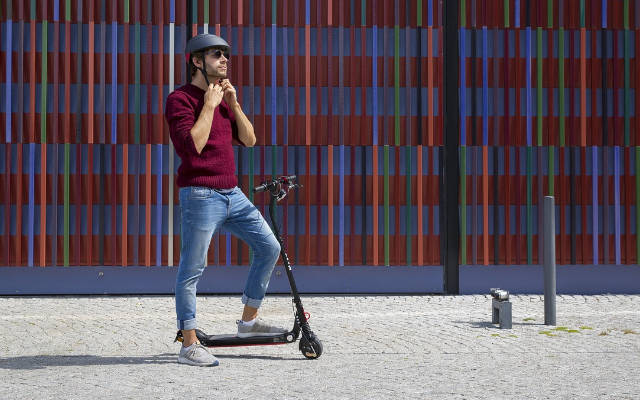 A new study from Chalmers University, featured in Air Quality News, finds that e-bikes pose a significantly higher crash risk than e-scooters—over eight times greater when accounting for exposure factors like trip distance and duration. The research analyzed GPS data from shared micromobility services across seven European cities, offering a more accurate comparison than previous studies. The authors call for better data-driven safety policies.
A new study from Chalmers University, featured in Air Quality News, finds that e-bikes pose a significantly higher crash risk than e-scooters—over eight times greater when accounting for exposure factors like trip distance and duration. The research analyzed GPS data from shared micromobility services across seven European cities, offering a more accurate comparison than previous studies. The authors call for better data-driven safety policies. Electric Aquaculture Boats Splash Into Waters Off the Coast of Rural Maine
19 Sep 2025 | Synopsis
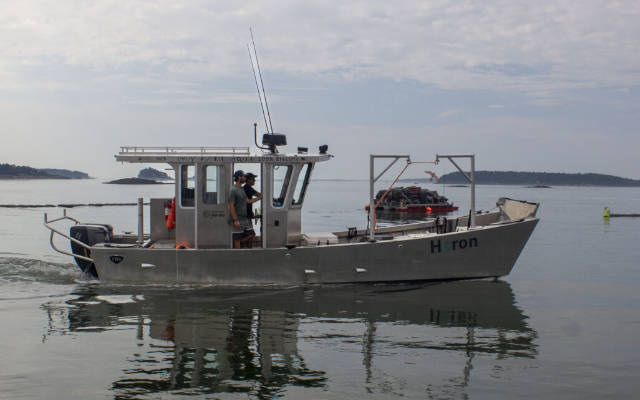 Electric fishing boat Heron launched in rural Maine, powered by twin electric outboards and backed by $1M in grants. Operated by Maine Ocean Farms, it cuts emissions, noise, and fuel costs. The shift supports climate goals amid warming Gulf waters. Challenges include battery weight and limited charging, but local groups are expanding infrastructure. Heron signals a sustainable future for aquaculture and rural marine industries.
Electric fishing boat Heron launched in rural Maine, powered by twin electric outboards and backed by $1M in grants. Operated by Maine Ocean Farms, it cuts emissions, noise, and fuel costs. The shift supports climate goals amid warming Gulf waters. Challenges include battery weight and limited charging, but local groups are expanding infrastructure. Heron signals a sustainable future for aquaculture and rural marine industries.
 EVWorld Exclusive
EVWorld Exclusive
Urban Connect: Modular Mobility Hubs for Transit-Rich Cities
29 Oct 2025 |  Urban Connect is a modular micromobility hub concept design-ed for dense, transit-rich cities, not unlike that designed by EV World founder and editor-in-chief in 2018. With secure docking, solar charging, and smart tech integration, these hubs support shared and private e-vehicles while boosting public transit use. Deployment costs range from $25K to $75K, with benefits including reduced emissions, improved public health, and expanded access.
Urban Connect is a modular micromobility hub concept design-ed for dense, transit-rich cities, not unlike that designed by EV World founder and editor-in-chief in 2018. With secure docking, solar charging, and smart tech integration, these hubs support shared and private e-vehicles while boosting public transit use. Deployment costs range from $25K to $75K, with benefits including reduced emissions, improved public health, and expanded access.
A Great Lakes Homecoming: Voltaic Marine Trades Silicon Forest for Michigan's Manufacturing Heartbeat
29 Oct 2025 |  Voltaic Marine, an electric boat startup from Oregon, is relocating to Michigan after a $3M pre-seed round. Drawn by state grants and Detroit's manufacturing strength, the company will begin commercial production of its AEW24 wakeboat in 2026 with Detroit Manufacturing Systems and Kinetyc. The move reflects a broader trend: clean-tech firms prioritizing scalable infrastructure and policy support over coastal startup hubs.
Voltaic Marine, an electric boat startup from Oregon, is relocating to Michigan after a $3M pre-seed round. Drawn by state grants and Detroit's manufacturing strength, the company will begin commercial production of its AEW24 wakeboat in 2026 with Detroit Manufacturing Systems and Kinetyc. The move reflects a broader trend: clean-tech firms prioritizing scalable infrastructure and policy support over coastal startup hubs.
A Different Kind of Crop Duster
29 Oct 2025 |  Pyka designs and manufactures autonomous electric aircraft for agricultural and cargo applications. Their Pelican 2 crop sprayer utilizes hot-swappable batteries and advanced sensors for efficient and precise spraying. Having received the first FAA approval for a large autonomous electric aircraft, Pyka has introduced the Pelican Cargo variant and develops its core technology internally.
Pyka designs and manufactures autonomous electric aircraft for agricultural and cargo applications. Their Pelican 2 crop sprayer utilizes hot-swappable batteries and advanced sensors for efficient and precise spraying. Having received the first FAA approval for a large autonomous electric aircraft, Pyka has introduced the Pelican Cargo variant and develops its core technology internally.
Tesla's Swedish Standoff: When Silicon Valley Meets Union Solidarity
29 Oct 2025 |  Tesla faces a prolonged labor strike in Sweden over its refusal to sign a collective bargaining agreement. What began with 70 mechanics has grown into a nationwide solidarity movement, challenging Tesla's anti-union stance. The dispute highlights a clash between Silicon Valley individualism and Nordic labor consensus, raising global questions about the future of work, electrification, and corporate accountability.
Tesla faces a prolonged labor strike in Sweden over its refusal to sign a collective bargaining agreement. What began with 70 mechanics has grown into a nationwide solidarity movement, challenging Tesla's anti-union stance. The dispute highlights a clash between Silicon Valley individualism and Nordic labor consensus, raising global questions about the future of work, electrification, and corporate accountability.
Energy Literacy and the Limits of Electrification
28 Oct 2025 |  COP30 will spotlight renewable electricity, but a recent op-ed by Ronald Stein and Yoshihiro Muronaka warns that wind and solar cannot replace the fossil-derived materials essential to modern life. From steel and plastics to EV components, hydrocarbons remain foundational. True climate progress requires energy literacy - understanding what electricity can and cannot do - and a balanced approach to decarbonization rooted in material reality.
COP30 will spotlight renewable electricity, but a recent op-ed by Ronald Stein and Yoshihiro Muronaka warns that wind and solar cannot replace the fossil-derived materials essential to modern life. From steel and plastics to EV components, hydrocarbons remain foundational. True climate progress requires energy literacy - understanding what electricity can and cannot do - and a balanced approach to decarbonization rooted in material reality.
 30 Oct 2025 00:35:11 UTC |
RECENT PODCASTS
Jeremy McCool with HEVO about Wireless Charging Infrastructure
SEARCH RSSTREAM
 44 New Postings In Past 24 Hours
44 New Postings In Past 24 Hours
Category:mobility
Region:AsiaPacific
Date:29 Oct 2025
Category:mobility
Region:NoAmerica
Date:29 Oct 2025
Category:mobility
Region:NoAmerica
Date:29 Oct 2025
Category:finance
Region:NoAmerica
Date:29 Oct 2025
Category:mobility
Region:NoAmerica
Date:29 Oct 2025
Category:finance
Region:AsiaPacific
Date:29 Oct 2025
Category:mobility
Region:IndoAsia
Date:29 Oct 2025
Category:mobility
Region:NoAmerica
Date:29 Oct 2025
Category:autonomy
Region:NoAmerica
Date:29 Oct 2025
Category:energy
Region:NoAmerica
Date:29 Oct 2025
Category:mobility
Region:Europe
Date:29 Oct 2025
Category:mobility
Region:NoAmerica
Date:29 Oct 2025
Category:mobility
Region:NoAmerica
Date:29 Oct 2025
Category:mobility
Region:Europe
Date:29 Oct 2025
Category:finance
Region:NoAmerica
Date:29 Oct 2025
Category:finance
Region:NoAmerica
Date:29 Oct 2025
Category:finance
Region:NoAmerica
Date:29 Oct 2025
Category:finance
Region:NoAmerica
Date:29 Oct 2025
Category:mobility
Region:MidEast
Date:29 Oct 2025
Category:finance
Region:NoAmerica
Date:29 Oct 2025